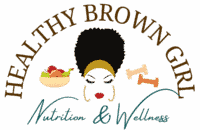Stop right there! By now you have probably read at least 5 articles trying to decide what to eat after a fast.
Perhaps you ran across a super technical article full of big sciencey words like “autophagy” or “gluconeogenesis”.
Or maybe you ran across other articles that make statements like, “eat whatever you want” or, “I break my fasts with beer and it hasn’t slowed my progress one bit”.
Articles like these can be extremely confusing for those who are trying to start an intermittent fasting lifestyle. Simple questions like “what food should I eat after a fast” can quickly turn into information overload in these internet streets. But have no fear!
In this article, I’ll give you a straightforward answer to your question by sharing my list of the 5 top foods you can eat after a fast. I’ll also explain why these foods are some of the best options without overwhelming you with science jibber jabber.
Let’s dig in!
1. Eggs:
Eggs are by far my favorite way to break a fast for many reasons:
- They are quick, easy to make.
- You can create several quick dishes with just a couple of eggs and whatever you have in your pantry.
- Eggs are complete protein food, so they have all the essential amino acids your body needs, especially after a fast.
Not a fan of eggs? Some great alternatives are would be tofu or even a small serving of fish or chicken.
Protein is important because it is digested and metabolized quickly, usually within 5 hours depending on the type of protein eaten.
So after a 16 hour fast, you will have depleted your amino acid (protein) stores and need to replenish them so your body can properly and efficiently build and repair itself.
If you are someone who works out while in a fasted state, this is an excellent choice of food for you to break your fast with.
2. Watermelon:
Want something sweet, light, and refreshing? Watermelon is the perfect way to ease back into eating after a long fast that lasts 20 hours or more. Some of the top reasons for this choice are:
- It tastes great and is easy to prepare
- The high water content is great for rehydration
- It is high is soluble fiber, making it great option for easy digestion after a fast
The high water content makes it easier to digest and less likely to cause the bloating or cramping that accompanies other high fiber foods.
When we fast from food, we essentially eliminate the water that we would normally consume through food sources. This means that approximately 25% of the water we usually consume from food is eliminated during a fast.
Some who are new to fasting may experience increased water elimination which is another reason why it’s very important to rehydrate cells within the body after a long fast.
Even though watermelon is a sweet low-carb food, the high water content keeps it from quickly spiking your blood sugar, making it a better choice than chocolate chip cookies.
If you are considering cookies, keep in mind that simple sugars after fasting can cause insulin spikes that can result in irritability and cause you to crash making you sluggish after a long day of fasting.
So if you are craving sugar after fasting, watermelon is a safe, tasty, and healthy option.
3. Bone Broth:
If you’re like me and prefer savory salty flavors over sweets, this one is a great option for you. The benefits of choosing bone broth after a fast are simple:
- It’s tasty and easy to digest
- It’s high in nutritional value
- It is a great natural way to replenish electrolytes after fasting
You may need a little extra time to prepare this one, but it’s worth the wait based on its nutritional value alone. Bone broth is high in protein which as we discussed earlier is an important nutrient to replenish after a fast.
Depending on how you prepare it, bone broth can contain high amounts of essential minerals such as sodium, calcium, magnesium, phosphorus, and potassium.
These are electrolytes that have likely been depleted during a long fast and will need to be replenished. Bone broth is a great way to do this and is likely very necessary if you exercised during your fast.
Here is a simple recipe if you want to give this option a try.
4. Sweet Potato:
You really can’t go wrong with sweet potato after a fast. Here are just a few of the reasons you should choose this option:
- Sweet potatos are filling
- They are easily digested
- You can prepare them many different ways
Sweet potatoes are a complex carb, but since they are higher in soluble fiber digestion is quick and easy. You will also remain fuller longer due to the high fiber content.
Since sweet potatoes are naturally sweet, you don’t need to add much to enhance the flavor. You can add a little cinnamon or nutmeg with butter or ghee to add some fat and increase satiety.
Sweet potatoes are also full of antioxidants which can help your body to clear free radicals post-fast.
5. Avocados:
I personally can eat avocados with just a dash of salt and pepper. However, you can eat them a variety of ways and get plenty of benefits from this superfood post-fast. My top reasons for choosing this food are:
- It is a healthy fat guaranteed to leave you satisfied, especially when combined with other post fast options.
- Like many of the other options, avocados are easily digested
- You can easily add them to any food to boost nutritional value and satiety
Avocados are also high in potassium which is an essential mineral that is depleted fairly quickly during fast. Many people reach for bananas for their potassium, however, avocados have twice the potassium of bananas.
Avocados are great to add to a protein like tuna or to even add to a fruit smoothy. They improve the nutritional profile of many simple meals and keep you fuller longer.
So there you have it! The top 5 foods you should eat after a fast. Some honorable mentions would be fruit smoothies, sauteed vegetables, and greek yogurt. The bottom line, you want to choose foods that are easy on the digestive system to help you transition into your feast hours.
If you have any foods that you like to eat when breaking your fast, be sure to share them!

I hold an undergraduate degree in Nutrition and Dietetics, and am currently pursuing my masters degree in Positive Psychology. I am also member of The Academy of Nutrition and Dietetics so I can stay up to date on all the latest nutrition news and research. I am dedicated to sharing what I have and am learning both personally and professionally with women seeking to lose weight and improve their lifestyles.
